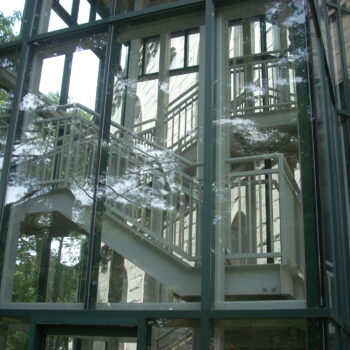
Salus Forum: May 7, 2025
I think there’s a lot going on with the whole Flow state, which is something that seems very compelling. You would think people would want to increase the number of Flow experiences they have in their lives. I think they try to pursue that and then get trapped in these little dopamine cycles. Is there’s dopamine addiction going on—because most of the algorithms were written to actually stimulate dopamine. That’s been part of our problem. Everyone’s getting addicted rather than getting Flow states, which is what they’re seeking. Internet “addicts” don’t just want information, knowledge, and related things when accessing the Internet. They are also looking for Flow on the Internet (or at least a dopamine rush).
Mark
I’d like to dovetail with your comment about the need for a challenge. How does it relate to the endless social media saturated with algorithms and dopamine? You’re really eliminating the physical and the challenge component. That’s why I think, for me personally, ever since I’ve been kayaking with Mitch and Jeremy, I find myself in Flow states, because when I first did it, and I capsized, Jeremy had to rescue me. I still got back in the kayak every day.
So, there was definitely that continuum from boredom to anxiety. I was on the threshold of anxiety, but I got back in the kayak. Ever since, I’ve been challenged. The waves get a little treacherous, or the winds, or the currents, and I’m just really focusing, I’m in a Flow state.
Likewise, in music, when I’m playing with people who are more accomplished than myself. After getting over that fear, and then being free to make mistakes, I can get into the Flow state.
Bill B
Mihali Csikszentmihalyi has been on the faculty at the University of Chicago. His mentor was Victor Turner. Victor Turner is a world expert on the threshold experiences and transitional ceremonies that cultures all over the world enact. The most obvious are the initiation rites into maturity, but thresholds can be engaged in many ways and many settings. Part of what Turner and Csikszentmihalyi are saying is that there are social structures that can be put in place at different times that relate to thresholds in our life experiences: marriage ceremonies, funerals.
Ceremonies are structured in societies that take us beyond anxiety, the sense of being overwhelmed by the death of another person, the anxiety associated with getting married, or the transition associated with becoming an adult. How do we create a threshold experience that is enthralling? Csikszentmihalyi is essentially said that thresholds relate to something we can call Flow.
So, Flow really begins with the social structures, or what Gay does in her work. How does she help people find the threshold between boredom and anxiety? On the one hand, we can treat therapy like just another conversation with friends—a lot of support but no challenge. On the other hand, we can become highly anxious: “My God, I’ve been shrunk by this horrible, evil person.” How do you find something between these two? Especially because Gay’s using all the strange equipment, and sticking it in my head: “God only knows what’s going to happen to me.”
Jeremy
We were talking last time about a broader, sweeping social movement construct. I think we got more into the individual narrative here, but I think what was nice is we pulled out a lot of factors that make narratives compelling for individuals. Maybe we can translate that into a question: How does the concept of Flow apply to a team?
- Posted by Bill Bergquist
- On May 28, 2025
- 0 Comment


Leave Reply